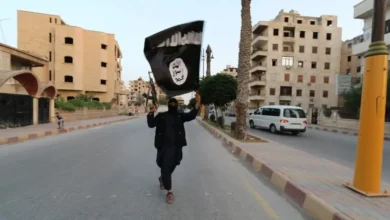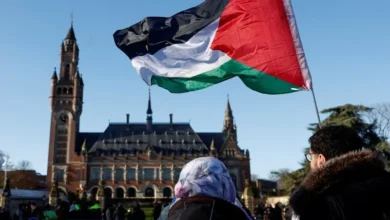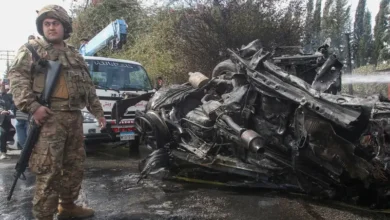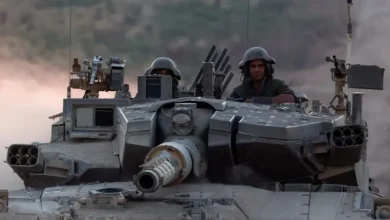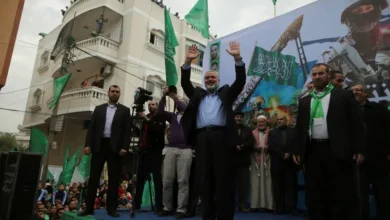‘Like a horror movie’: The men defending their homes in Sudan’s bloody war
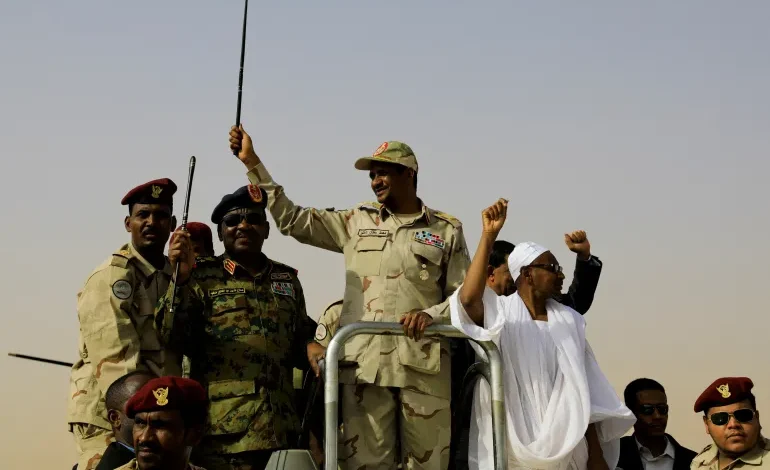
Mojahed was one of the few men carrying the dead body of his father’s friend, Muhammad Ahmar. Around 40 mourners had gathered in late May in the Ombada district of Omdurman, a city in Sudan occupied by the Rapid Support Forces (RSF), to witness the burial of this respected figure, the head of a family in his 70s who used to be an architect.
A bullet had pierced his back during one of the RSF lootings in late May. Muhammad was deemed “uncooperative” by the members of the RSF while they were trying to requisition his car; he was shot and left for dead in front of his son.
Sorrow loomed as the burial line reached a local schoolyard, a temporary grave for many victims of the war since April. The presence of violent RSF members close by made it impossible for any proper funeral rites to take place.
“Muhammad was a peaceful and respected man,” Mojahed, who did not wish to give his full name for fear of reprisals, recalls. “On the day before his death, we ran into each other after the evening prayer, and he told me that I looked like my father.”
Blood was still seeping from the gunshot wound, Mojahed says, as he and the other pallbearers laid Muhammad in his grave. The fear of RSF assaults meant a rushed burial, and the schoolyard had become the resting place for many community members killed during the war.
No one thought Omdurman would become a hellscape. Now, Mojahed is living it.
Once a home
Following years of instability and coups, Sudan has been devastated by fighting between the Sudanese army, led by Abdel Fattah al-Burhan, and the RSF, led by his former deputy, Mohamed Hamdan Dagalo, known as Hemedti.
The Rapid Support Forces evolved from the Janjaweed militias from the Darfur region, fighting alongside the Sudanese army against a rebellion in the 2000s. Grasping more power throughout the years, the RSF became an undeniable and brutal force in Sudan, described by Human Rights Watch as “Men With No Mercy”.
The power struggle between these two top generals evolved into a full-scale war on April 15 this year. Since then, more than 5,000 people have been killed, 12,000 injured and millions displaced.
Gunfire and explosions have filled the capital of Khartoum and the western region of Darfur as civilians have fled for their lives. By the end of September, the United Nations said a total of 5.4 million people had been internally displaced or were seeking refuge in other African countries including Egypt, Eritrea and Kenya.
Mojahed’s family are among those millions displaced. Their house, located in a middle-class neighbourhood in Omdurman and once home to dozens of extended family members before the war, now holds just one – Mojahed – as it is in an area which has been taken over by the RSF.
A former police officer now aged 46, he volunteered to stay behind while his wife and two children fled to al-Thawra after the war started – a town 10km (6.2 miles) north of Omdurman and still under army control. The family believed they would be safer there.
The once-bustling neighbourhood filled with street vendors, teachers and restaurant owners is now crowded with RSF patrols, looking to pick up anyone who looks suspicious. Any adult male civilians may be suspected of being undercover army members. “They [RSF] will constantly question any adults walking on the street or just going to the market,” Mojahed says. “You are asked about where you live and if you are part of the military, undercover.”
According to Mojahed, a whip from a leather stick is the most common weapon the patrol members use during interrogations. Any resistance will be met with bullets or arrest and even torture in one of the nearby RSF camps.
“People that go into [those] camps either never make it back or are released after days of torture,” Mojahed says, describing the encounters he has heard about between the RSF and others living in his neighbourhood. “It’s RSF’s second nature to kill. To them, it’s as easy to take a human life as it is to step on an ant.”
Now, adult men refrain from going to RSF-concentrated areas like the market, sending women and children instead since they have proved less likely to attract the patrol’s attention. Mojahed says he himself has taken to leaving the house carrying only a small amount of cash and a half-broken phone, wearing a jalabiya, a traditional white dress often worn by elders in Sudan, so he appears “old and weak”.
The worst feeling, Mojahed says, is the crushing weight of uncertainty: “You know someone and the next day, you hear people came to their house and killed them. It’s like a horror movie.”
